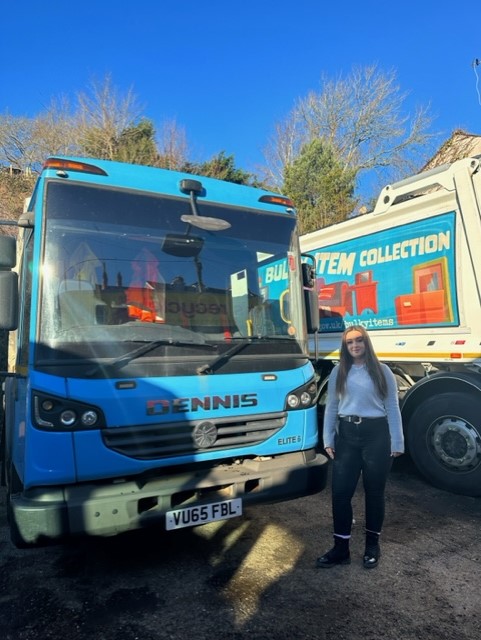Motor Vehicle Service and Maintenance Technician (Light Vehicle) – Apprenticeship
This three year apprenticeship is suitable for those entering the automotive industry without prior technical qualifications in the area. However, the completion of a Level 1 qualification in Vehicle Maintenance and Repair would be beneficial.
A light vehicle technician will carry out tasks ranging from replacing simple parts through to solving complex faults with the use of diagnostic equipment.New approved Apprenticeship Standard for technicians who service and repair light vehicles.The light vehicle apprenticeship standard course is delivered over three years on a day release basis. Four days per week will be at the employers workplace, working as an apprentice technician. At the workplace you will be allocated a ‘mentor’, and you will learn and develop skills and competence within vehicle maintenance and repair. During your day at college, you will spend time both in the classroom and our specialist workshops.
During this apprenticeship, you will be required to learn the following knowledge, skills and behaviours:
KNOWLEDGE:
– How vehicle service and repair is impacted by legislative, regulatory and ethical requirements, including health and safety law and environmental procedures
– The structure of the industry and how the business works from an operational perspective, business targets, the systems and processes that make up the efficient running of a business
– How to develop positive working relationships and communicate effectively and how to carry out self-evaluation and improve own performance
– The procedures for the maintenance of tools and the workshop
– Routine servicing and inspection procedures
– Steering and suspension geometries; electrical circuit requirements and calculations
– Construction and operation of vehicle components and systems
– Common fault types, causes and effects of different types of faults
– The implications and legal requirements of fitting accessories and carrying out vehicle modifications
– How to diagnose faults using suitable fault-finding strategies
– Construction and operation of advanced electrical, braking and suspension systems, engine and transmission systems and engine and gear calculations
– Vehicle emissions and legal requirements
– Alternative fuels and hybrid and electric systems
SKILLS:
– Contribute to the maintenance of a safe and efficient workshop
– Demonstrate due regard for own safety and that of others in the workshop and minimise risk of injury and vehicle damage
– Carry out fundamental tasks associated with removal and replacement procedures on a vehicle
– Obtain diagnostic and repair information
– Interpret diagnostic information and use electrical wiring diagrams to determine system serviceability
– Use a range of diagnostic equipment
– Follow recognised diagnostic procedures, logical diagnostic sequence and apply advanced diagnostic principles and problem-solving techniques to establish faults
– Report faults using company procedures and recommend suitable further actions
– Follow recognised repair procedures to complete a wide range of repairs including those which involve complex procedures, or in-depth knowledge
– Test the function of repaired and fitted components
– Adhere to business processes and complete documentation following workplace procedures
– Use ICT to create emails, word-process documents and carry out web-based searches
– Complete a range of services and inspect and prepare a vehicle to the required quality standard for handover to the customer
BEHAVIOURS:
– Take responsibility when required and be honest and accountable when things don’t go as planned
– Operate as an effective team member
– Behave in accordance with the values of the company and treat colleagues and customers with respect and courtesy
– Build effective relationships with colleagues and customers
– Gain trust and pay attention to colleagues and customers concerns and needs
– Communicate effectively on a range of topics and with all sorts of different people
– Deliver excellent results and achieve challenging goals
– Contribute to problem solving discussions and enjoy finding solutions to own and other people’s problems
– Suggest ways to make the business more efficient and contribute to its commercial growth
– Constantly learn in order to improve own performance and that of the business
– Share knowledge and skills
– Demonstrate a passion for engineering
Within each year of the course, there are separate groups in which you will study:
Year 1:
Group 1 – Soft skills and behaviours
Group 2 – Induction and foundation skills
Group 3 – Routine service and inspections
Year 2 :
Group 4 – Simple diagnosis and repair
Group 5 – Intermediate diagnosis and repair
Year 3:
Group 6 – Complex diagnosis and repair
Group 7 – Complete systems understanding and repair major components
At the end of the three-year course, subject to review, you will enter the end-point assessment (EPA) phase.
Apply for this course
Select from the start date/s below…
 North Devon Campus
North Devon Campus
Course details
Assessments
On-programme assessment will include employers and Petroc reviewing your progress via summative assessments at gateways 1 and 2. These assessments are designed to review your behaviour, knowledge and skills against set criteria. The gateway assessments at the end of each year will consist of knowledge exams, and practical skills assessments. You will also attend an end-point skills assessment during the end phase.
Additional mandatory requirements:
The course will include an air conditioning F-gas qualification, in line with the EU regulation that everyone involved in the service and maintenance of mobile air conditioning systems require certification. Functional Skills English and Maths L2 (or equivalent) must be undertaken before entry to the EPA phase.
Entry Requirements
All entrants must hold four GCSEs at grade 3 or equivalent (or above), including GCSE Maths and English. If you do not have a GCSE grade 4 in Maths and/or English you will continue studying these subjects alongside your chosen course(s). At the end of the year, you are expected to have completed and achieved all the components of your Level 2 Study Programme and improved your Maths and English skills before progressing to your next level course.
Progression
Upon completion of this apprenticeship, you could further develop your knowledge through a higher level apprenticeship.
Facilities and resources
As an apprentice, you will have full access to the college facilities. This course is run at the North Devon campus in a teaching environment that is very similar to a modern vehicle repair centre.
Why Petroc should be your first choice
Petroc offers quality education and training across North and Mid Devon. We aim to provide outstanding learning, excellent facilities, strong connections to employers and a supportive environment to help you fulfil your education goals and set you on your path to the career of your dreams.

SUPPORTIVE
We offer a supportive and inclusive environment where you can flourish and feel a valued member of the college and wider community.
INSPIRING
Our teaching spaces and facilities are some of the best in the region, providing stimulating and true-to-life learning environments.
CONNECTED
We’ll provide you with the experiences you need to be ready for employment or the next step on your educational journey.







